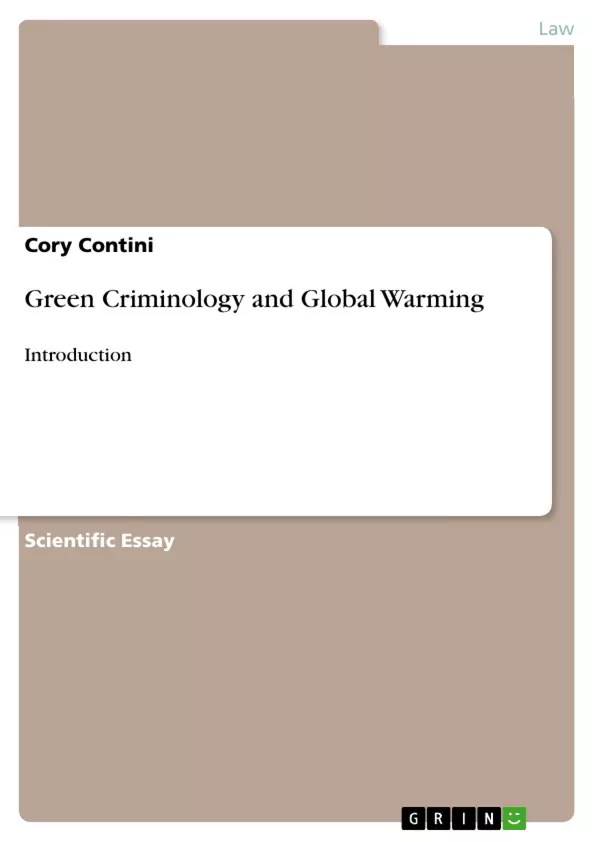Taking a critical analysis of the greening of criminology with a more specific look at global warming and various external and internal factors. This paper also provides approaches aimed at controlling environmental crime.
Table of Contents
- Introduction
- The Greening of Criminology and Environmental Crime
- Global Warming: A Capitalist Crime Against Humanity
- The Rise of Environmental Awareness and Criminology
- Challenges to Environmental Law Enforcement
- Frameworks and Theoretical Approaches to Green Criminology
Objectives and Key Themes
This paper analyzes the complex issue of global warming within the framework of green criminology. The objective is to critically examine the role of industrial capitalism in contributing to this environmental threat and to explore potential solutions for controlling environmental crime. The paper also aims to identify challenges and obstacles in implementing effective environmental regulations and laws. Key themes include:- The role of industrial capitalism in global warming
- The emergence of green criminology
- The challenges of enforcing environmental laws
- The importance of international cooperation in addressing global warming
- Different theoretical approaches to green criminology
Chapter Summaries
- Introduction: The paper introduces the concept of global warming as a significant environmental issue and its connection to industrial capitalism. It also highlights the need for criminological analysis of environmental crime.
- The Greening of Criminology and Environmental Crime: This chapter defines environmental crime and explores the development of green criminology, emphasizing the study of corporate activities that harm the environment.
- Global Warming: A Capitalist Crime Against Humanity: This section discusses the role of large corporations and transnational companies in producing greenhouse gas emissions, arguing that their actions constitute a capitalist crime against humanity.
- The Rise of Environmental Awareness and Criminology: This chapter examines the growing awareness of environmental issues and its impact on the field of criminology. It discusses how environmental concerns have broadened the definition of crime to include white collar crime and pollution.
- Challenges to Environmental Law Enforcement: This section analyzes the difficulties in enforcing environmental laws due to factors such as corporate lobbying, weak enforcement mechanisms, and the complexity of global warming.
- Frameworks and Theoretical Approaches to Green Criminology: This chapter explores various theoretical frameworks used by criminologists to address environmental crime, including socio-legal, regulatory, and social action approaches.
Keywords
This paper focuses on the crucial topics of green criminology, global warming, environmental crime, industrial capitalism, corporate responsibility, and environmental law enforcement. The text emphasizes the importance of international cooperation and explores different theoretical frameworks used to address the complex issue of environmental crime. The paper also highlights the need for effective regulations and enforcement mechanisms to protect the environment.Frequently Asked Questions
What is Green Criminology?
Green criminology is a branch of criminology that focuses on environmental crimes, including pollution and corporate activities that harm the ecosystem.
How is global warming linked to capitalist crime?
The paper argues that industrial capitalism and large corporations contribute significantly to greenhouse gas emissions, framing this as a "capitalist crime against humanity."
What are the challenges in enforcing environmental laws?
Challenges include corporate lobbying, weak enforcement mechanisms, and the inherent complexity of addressing global issues like climate change within national legal systems.
Why is international cooperation necessary for environmental crime?
Since environmental damage and global warming transcend national borders, global solutions and cooperative legal frameworks are essential for effective control.
What theoretical approaches are used in green criminology?
The paper explores socio-legal, regulatory, and social action approaches to understanding and mitigating environmental crimes.
- Quote paper
- Cory Contini (Author), 2008, Green Criminology and Global Warming, Munich, GRIN Verlag, https://www.grin.com/document/230623



